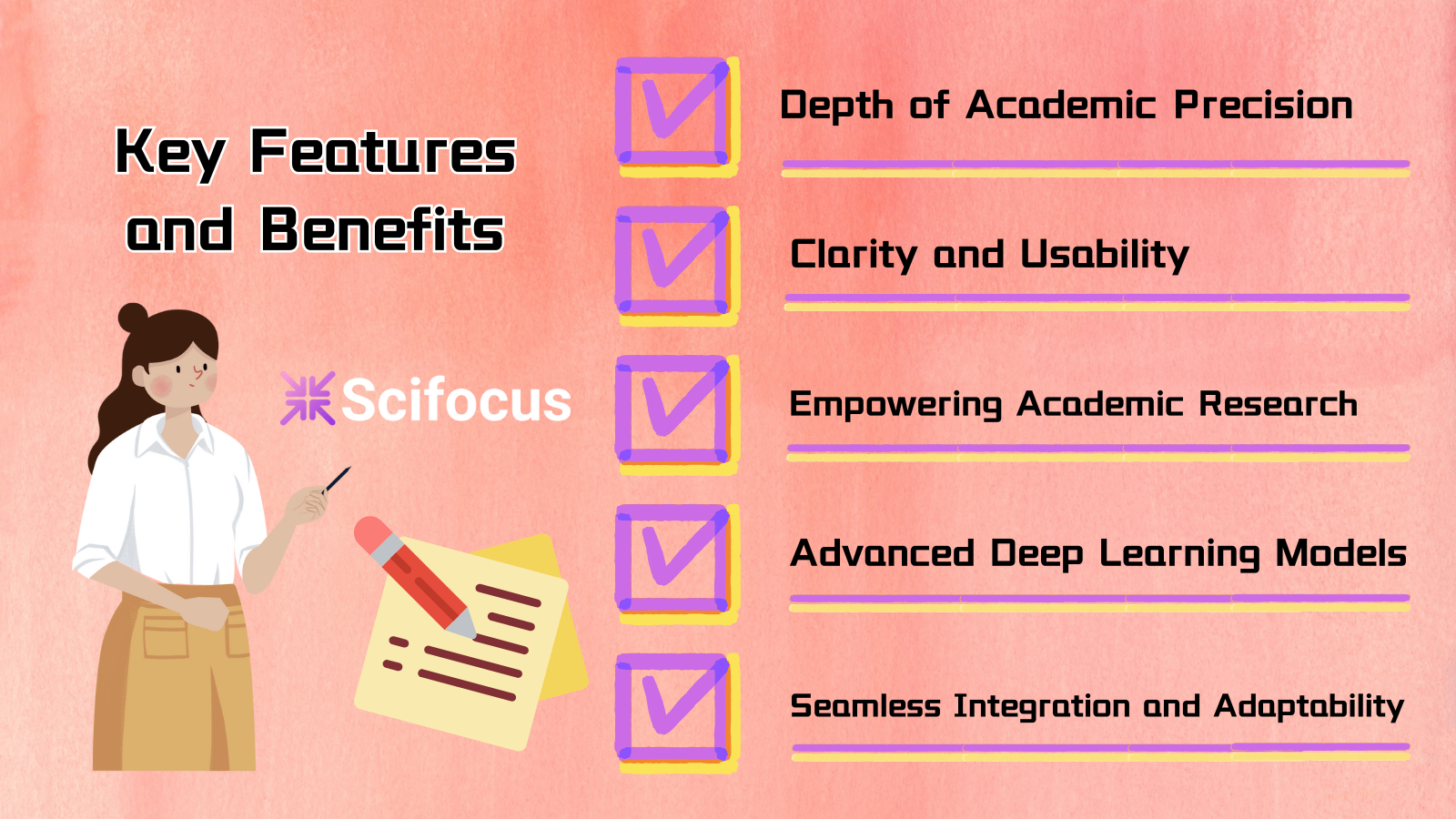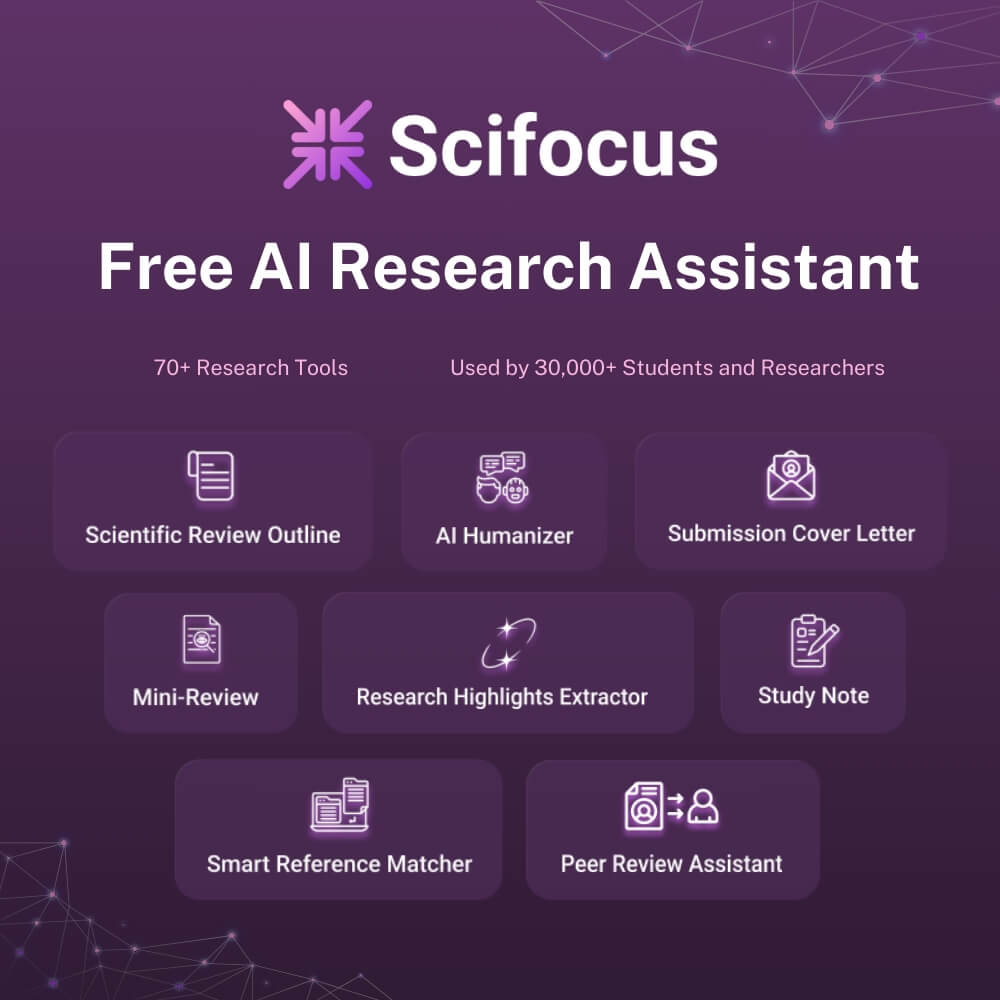Scifocus AI Prompt Generator: Transforming the Way We Approach Academic Writing

Introduction
The Scifocus AI Prompt Generator, a feature within the Daily Assistant Toolkit, is revolutionizing academic writing by offering unparalleled precision and depth. Designed for simplicity and efficiency, this tool allows users to input a single sentence or phrase-up to 40 words-to generate detailed, structured prompts that are academically rigorous and ready for immediate application. Unlike competitors such as HIX.AI, Scifocus ensures every output is not only comprehensive but also formatted for direct use.
In this blog, we will explore how to use the AI Prompt Generator, its unique selling points, and why it stands out in the crowded AI writing tools market.
How to Use the Scifocus AI Prompt Generator
Getting started with the Scifocus AI Prompt Generator is straightforward:
- Navigate to the Tool: Open the Daily Assistant Toolkit on the Scifocus Dashboard (available for free). Locate the AI Prompt Generator and click to enter.
- Input Your Prompt: In the single-line input box, type the purpose of your prompt. For instance, 'mediates many chemical processes within cells.'
- Receive Structured Output: The tool instantly generates a structured, professional-grade output that includes background information, workflow, goals, and actionable suggestions tailored to your input.
For example, inputting the phrase 'mediates many chemical processes within cells' results in a detailed academic framework, as shown in the accompanying image. This level of detail and formatting is unmatched, making it one of the best prompts for text summarization and academic tasks.
Key Features and Benefits

1. Depth of Academic Precision
Scifocus goes beyond surface-level outputs by providing a comprehensive academic framework. Here's an example of its capability:
- Background: 'The role of a cellular biochemist is critical for understanding how chemical processes mediate various functions within cells. This understanding is essential in fields like medicine, genetics, and biotechnology, where the manipulation of these processes can lead to advances in treatments and therapies.'
- Goals: 'To elucidate the mechanisms of chemical processes in cells. To explore how these processes can be manipulated for therapeutic purposes. To provide insights that can inform research and practical applications in medicine.'
These outputs highlight Scifocus's strength in combining ideas into one sentence AI-generated insights while maintaining academic integrity. This depth makes the tool ideal for researchers who need detailed prompts tailored to specific academic disciplines.
2. Clarity and Usability
The tool's modular design ensures clarity and ease of use. Every output is divided into distinct sections such as background, workflow, and suggestions, making it simple to follow and implement.
For instance, the 'Workflow' section might include steps like:
- Identify the specific chemical processes of interest within cellular contexts.
- Gather relevant literature and data to understand existing research and gaps in knowledge.
- Analyze the chemical interactions and pathways involved using appropriate methodologies.
- Conduct experiments or simulations to test hypotheses related to these processes.
- Synthesize findings into a clear, comprehensive report.
Such structure not only answers questions like 'how to do prompts' but also provides a roadmap for complex research projects. The outputs are polished enough to be used directly, effectively converting text to professional formats.
3. Empowering Academic Research
The Scifocus AI Prompt Generator is built on a foundation of academic excellence. Supported by top global medical and research databases, it ensures your writing remains grounded in cutting-edge research methodology. Whether you're working on fundamental theoretical studies or applied practice, the tool's outputs are tailored to your unique academic needs.
Led by a team of senior interdisciplinary research experts, Scifocus continuously fine-tunes its large models to adapt to the characteristics of diverse disciplines. This optimization enables the AI to deliver outputs that reflect the highest standards of academic writing and research rigor. Furthermore, the tool benefits from long-term strategic partnerships with global research teams, leveraging decades of experience to create the ultimate academic writing assistant.
4. Advanced Deep Learning Models
Scifocus leverages the latest advancements in hybrid deep learning architecture to build intelligent academic writing tools. From handling complex professional terms to maintaining rigorous logical structures, its AI ensures the generation of high-quality academic content. Moreover, the tool provides features like intelligent framework construction, enabling users to develop research paper structures or even experimental designs effortlessly. This capability not only accelerates research but also enhances its overall quality.
5. Seamless Integration and Adaptability
Another remarkable feature of the Scifocus AI Prompt Generator is its adaptability to various academic writing tasks. Whether you're drafting a research proposal, preparing a literature review, or structuring a dissertation, the tool provides detailed and specific prompts that align with your academic goals. Its seamless integration with other tools in the Daily Assistant Toolkit ensures a smooth workflow, making it a one-stop solution for researchers and students alike.
Why Scifocus Outshines the Competition
When comparing Scifocus to tools like HIX.AI, the differences become clear:
- Scifocus provides structured prompts that are highly specific and academically rigorous. Outputs are detailed, with distinct sections such as goals, workflow, and actionable suggestions.
- HIX.AI produces simple paragraph outputs, often lacking the depth and formatting necessary for academic use.
By focusing on clarity and precision, Scifocus emerges as a formal writing generator that not only supports academic work but also elevates its quality. The tool can even act as a free paragraph generator, aiding users in drafting professional-grade text effortlessly.
Use Cases
Here are some practical applications for the Scifocus AI Prompt Generator:
- Academic Writing: Generate prompts for essays, research proposals, or theses. For example, learn how to write a biography essay with structured outputs.
- Professional Communication: Convert text to professional emails or explore how to start a work email in English with clarity.
- Literature Analysis: Enhance your understanding of texts by learning how to read literature like a professor.
- Content Refinement: Utilize features like the phrase rewriter and sentence rewriter to refine drafts or combine ideas into one sentence AI efficiently.
Conclusion

The Scifocus AI Prompt Generator is a game-changer in academic writing. Its unique combination of simplicity, depth, and usability makes it the go-to tool for anyone seeking high-quality, structured prompts. Supported by advanced deep learning models and extensive research databases, the tool empowers users to produce work that is not only academically rigorous but also impactful.
Whether you're a researcher, student, or professional, Scifocus offers the best prompts for text summarization, formal writing, and beyond. Explore the tool today and experience how it transforms the way you approach academic and professional tasks.
Did you like this article? Explore a few more related posts.
Start Your Research Journey With Scifocus Today
Create your free Scifocus account today and take your research to the next level. Experience the difference firsthand—your journey to academic excellence starts here.
